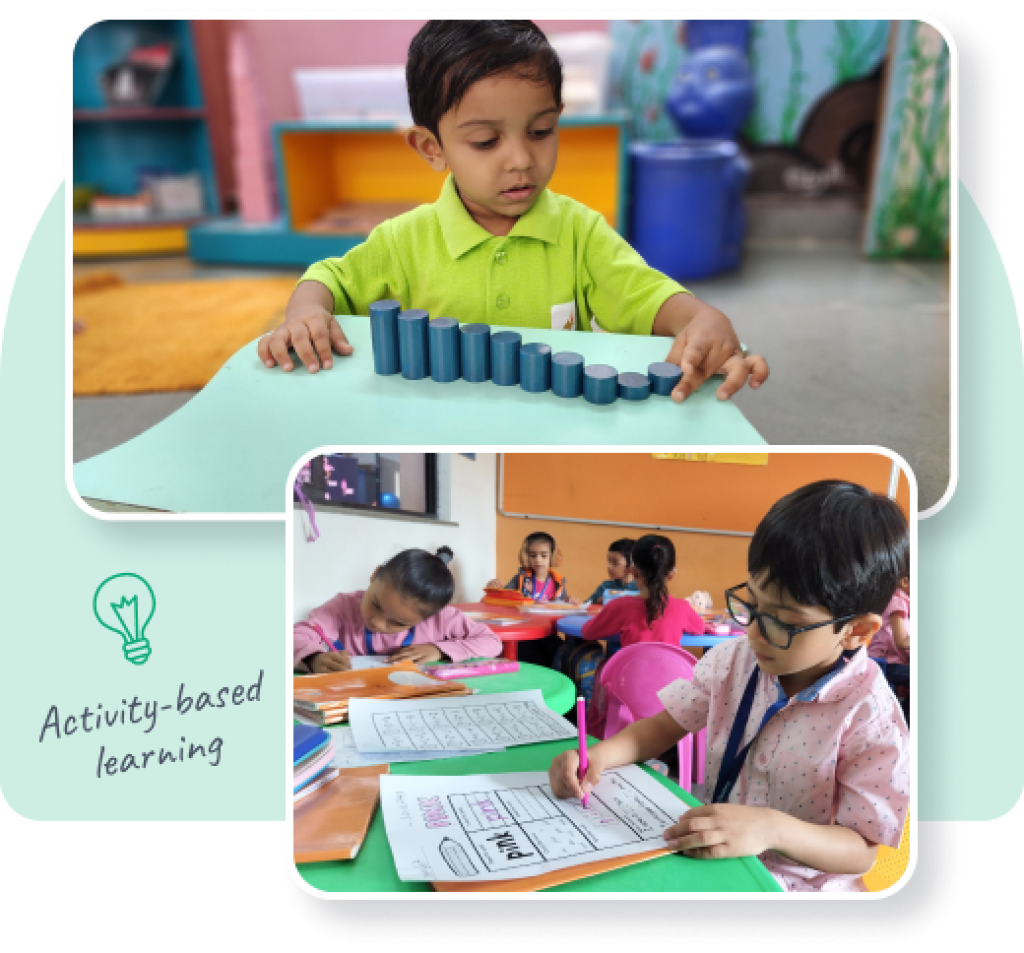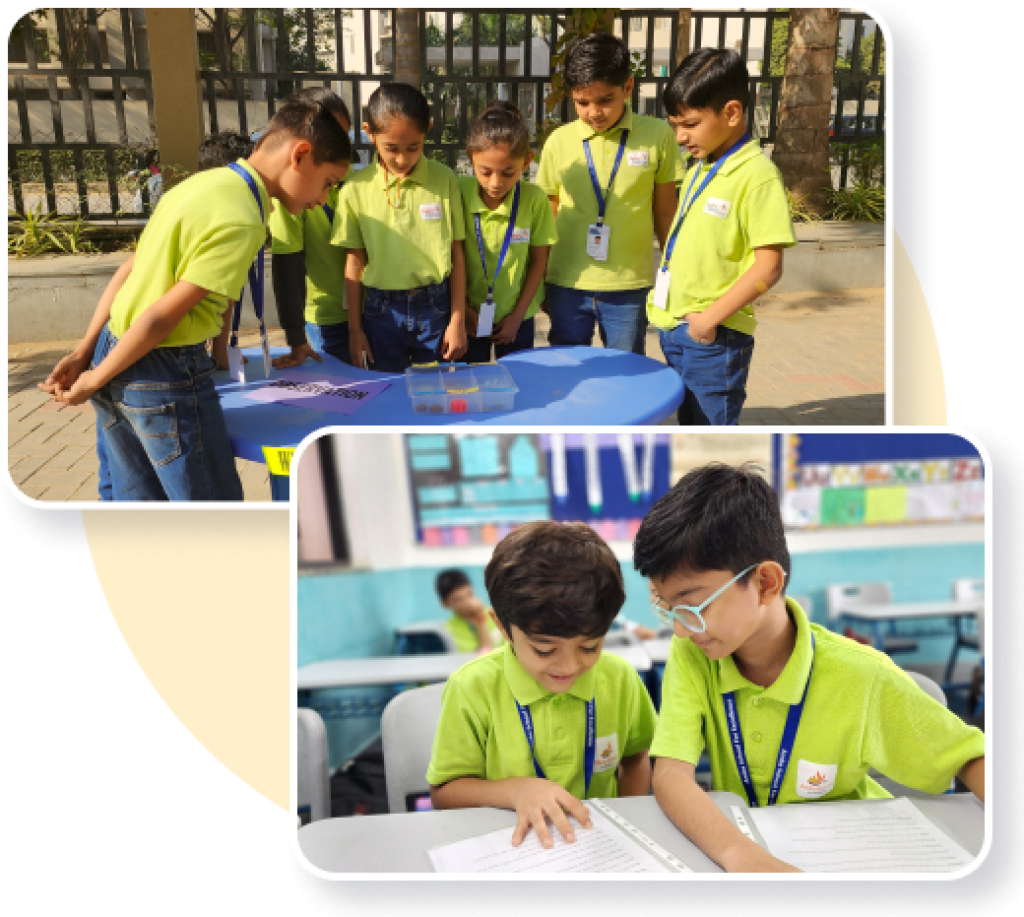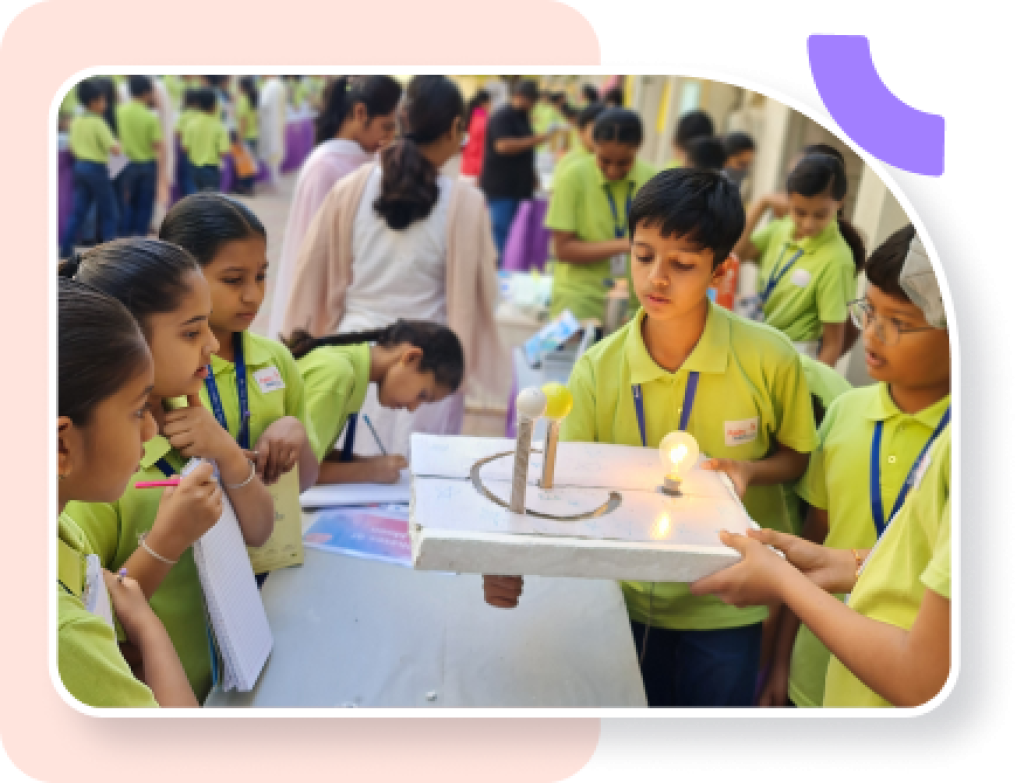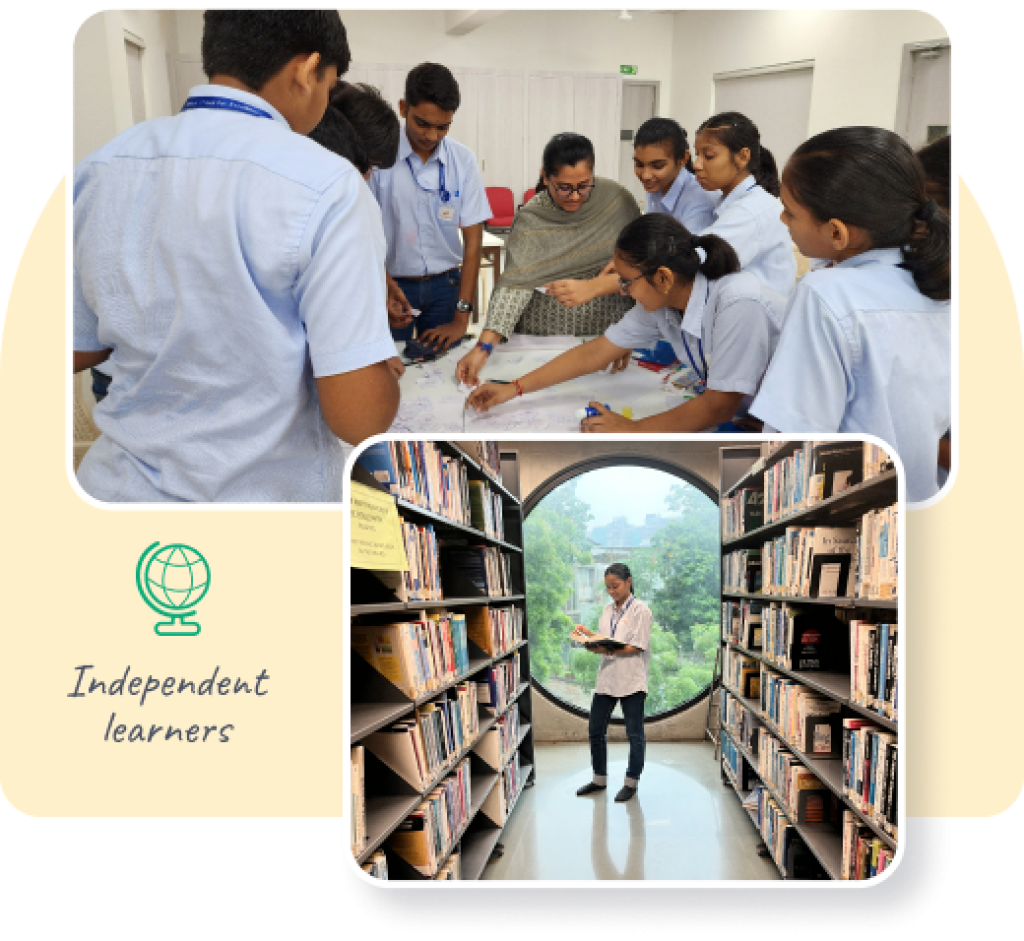Foundational Stage (Nursery to Class 2)
Pre-primary education plays a crucial role in a child’s overall development by laying a strong foundation of numeracy and literacy skills and introducing children to the natural and social world around them. Our teachers utilize hands-on approaches, such as play-way and activity-based learning. Montessori activities are incorporated to nurture independence, concentration and coordination skills. An interdisciplinary approach is used to develop the five developmental domains and positive work habits:
Physical Development
Students engage in activities that promote health, safety and physical agility. This includes numerous gross and fine motor activities like jumping through hoops while counting in numeracy lessons, cutting out pictures in phonics, smelling various fruits during science classes and making a roti dough during Montessori time.
Socio-Emotional Development
Through storytelling and discussions during circle time, children learn to understand and manage their emotions, as well as learn to positively interact with others.
Cognitive Development
Maths is everywhere! Children learn to understand their surroundings through observation and logical thinking. With the CPA (concrete-pictorial-abstract) approach at the core, children develop mathematical thinking to recognize the world through quantities, shapes and measures.
Language and Literacy Development
Beyond reading and writing, children develop communication skills for day-to-day interactions. They progress through a phonics curriculum tailored to their level, learning to decode and understand complex words.
Aesthetic and Cultural Development
Art activities are integrated throughout the curriculum to enable children to develop abilities in visual and performing arts and express their emotions through art in meaningful and joyful ways.
Positive Work Habits
Children develop habits of learning that allow them to engage actively and positively in the learning environment by giving them opportunities to work and play together and independently.
Preparatory Stage (Class 3 to 5)
In the early primary years (Class 3 to 5), our curriculum approach is to build language and mathematical skills, as well as to develop a curiosity for the world. We aim to make education relevant and meaningful for students while working to develop essential skills for learning:
Languages
The language curriculum works on the following critical domains: oral language development, vocabulary, reading fluency, reading comprehension and writing.
Environmental Science
The environmental science curriculum brings to children an awareness of the natural and social world:
The science curriculum focuses on developing scientific skills such as observing, predicting and investigating.
The social science curriculum aims at gaining an understanding of the natural and human environment from the family and neighbourhood to the community and state levels.
Math
The math curriculum is centred around the CPA method, where abstract concepts are learnt through concrete and pictorial representations. The focus is on developing essential math skills and strategies to solve the problems around us.
Middle Stage (Class 6 to 8)
In the later primary years (Class 6 to 8), our approach is to create a balance of teacher-directed instruction and student-centred learning.
We work to empower students to become active participants in their learning, as teachers step into the role of facilitators.
Students actively take part in the learning process by collaborating and communicating with their peers through small group discussions, inquiry exercises, labs and activities. At the end of the process, we aim to teach students how to learn, consequently creating lifelong learners.
Secondary Stage (Class 9 to 12)
In the secondary years, students are expected to become more independent learners, under the mentorship of teachers. A focus is given to board-related practices to successfully prep students for the mandatory board examinations. The key pillars of our approach at the secondary stage include the following:

Holistic Readiness & Character Development
We work to bridge academic knowledge with practical skills, ensuring students excel in higher education and the professional landscape.
Personalised Learning Paths
We recognize that each child is different and needs to be mentored. We offer opportunities for students for not only career guidance but also to discuss study plans with teachers. Sessions for goal setting and self-assessments are conducted where students can identify their strengths and areas of improvement in study habits and personal habits.
Assessment Strategies
Routine assessments are conducted to provide insightful feedback for improvement. Individual and group conferences are also held to discuss how students can continue to progress forward.







